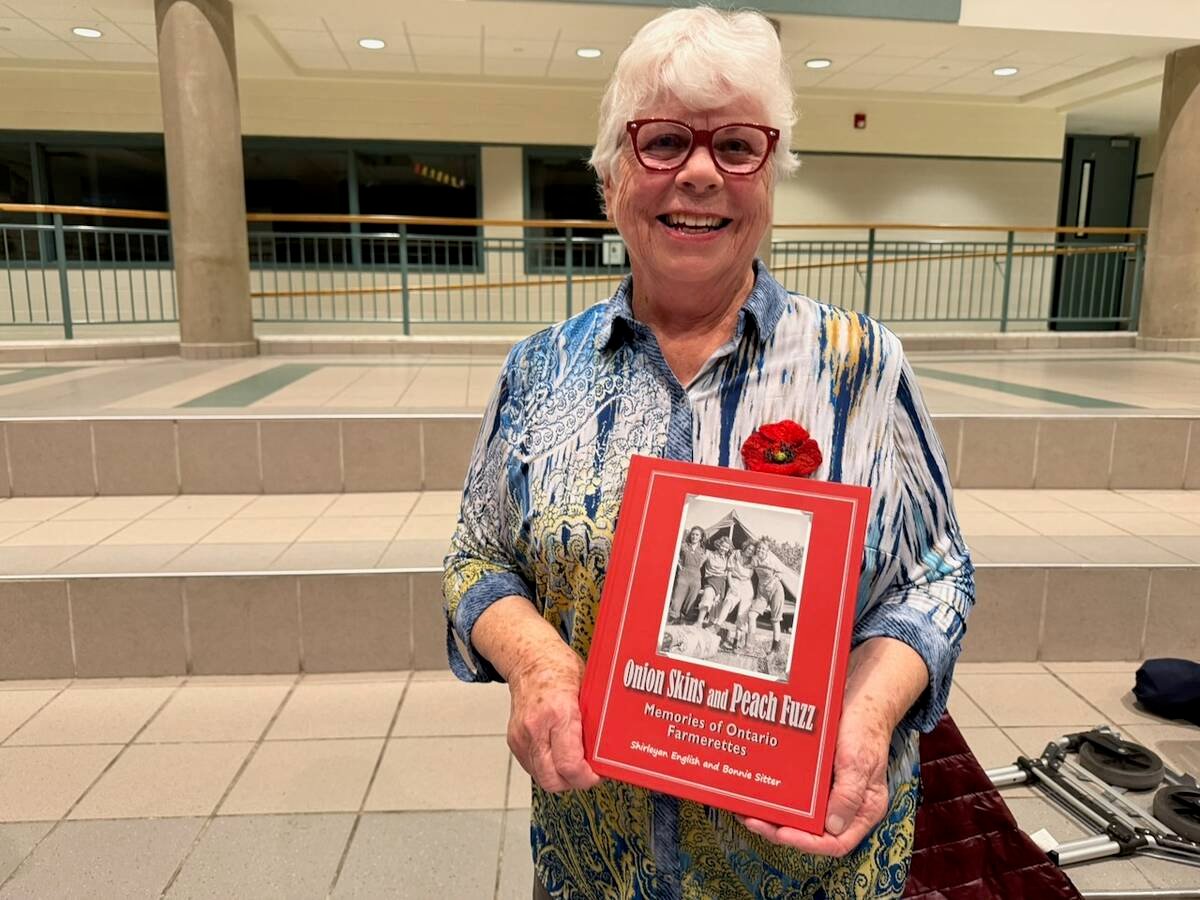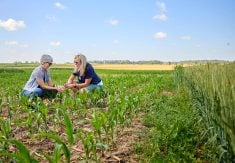The University of Guelph’s Research Innovation Office (RIO) is supporting research through a new approach to innovation.
Last year, the team responsible for helping commercialize research began taking a new look at innovation, commercialization and where research needs come from. This has resulted in a new collaborative approach and the new Competitive Advancing Research Impact Fund.
Why it matters: Although Canada is globally known as a leading agricultural producer, the country’s ability to move agricultural innovation into the marketplace doesn’t rank nearly as high.
Read Also

Women who fed a nation
More than 40,000 young women supported the war effort between the 1940s and early 1950s, helping grow and harvest crops amid labour shortages. They were called Farmerettes.
“We realized in our office that although we are very focused on commercialization, we weren’t having discussions around problem analysis: are we having conversations with farmers and are we solving the right problems (with research),” says Jessica Bowes, assistant vice-president, Research Innovation and Knowledge Mobilization at the University of Guelph.
In looking around for a partner who could help with system-level analysis, RIO’s new manager of new venture creation, Tyler Zemlak, made a connection with Dr. Tima Bansal, a professor of strategy at the Ivey Business School in London, and her team.
“Where we landed is that we want to support sustainable agriculture, define it in Ontario and look at how we can move it forward,” Zemlak explains, adding that the original starting point was the theme of net-zero agriculture.
To get a sense of what kind of traction this topic might get in the industry and what aspects of it are of most interest to agriculture, Ivey post-doctoral associate Alica Macena set about interviewing farmers, industry partners and academics about the challenges they face on the farm and how those might be addressed through innovation.
“We found that net zero resonated less with the day-to-day challenges that farmers face. So even though farmers are directly impacted by climate change through weather, for example, the challenges they face day-to-day have to do with their livelihoods, input costs, labour access, cost of land etc.,” Macena says. “So we understood that we needed to focus on something that would cut across different problems and be relevant to their daily challenges, and soil health became the central touch point.”
According to Macena, the most cited on-farm problems related to rising costs, from inputs to labour, but interviewees also mentioned uncertainty regarding yield, government regulations, crop loss and general difficulties related to management and operations.
To help find solutions to issues identified, the Ivey and RIO teams brought together many of the interviewees from the survey as well as other interested participants from across the value chain, including entrepreneurs and faculty from three different colleges at Guelph, for a day-long workshop in early spring.
“The whole point of the systems approach is there needs to be a diversity of perspectives,” Macena says, adding that the goal of the workshop was trying to map which ideas the group was most excited about and generated the most interest.
Those included soil sensors, application of robotics, livestock innovation and application of grazing animals to soil health, use of nanoparticles and testing and diagnostics.
A report summarizing the research findings is currently in development, and the new Competitive Advancing Research Impact Fund was launched to help move some of the most innovative, applicable soil health ideas forward, including assistance with finding project teams.
“One of the services we offer as RIO is that we can facilitate introductions. The hope is that we can create industry-sponsored research engagement,” says Bowes.
“We want to make sure we can make it easy for project collaborations to happen. This process is really helping us lean into community building.”
Seven letters of intent for projects resulted from the day. Applicants are now developing full project proposals, and three will receive $40,000 each to help with proof of principle.
Each project team includes a farmer, an entrepreneur and a technical expert; successful recipients will be announced later this year.
The research report, followup workshop and and grant funding are supported by the Food from Thought research program at the University of Guelph, which is funded in part by a $76.6 million grant Canada First Research Excellence Fund.














